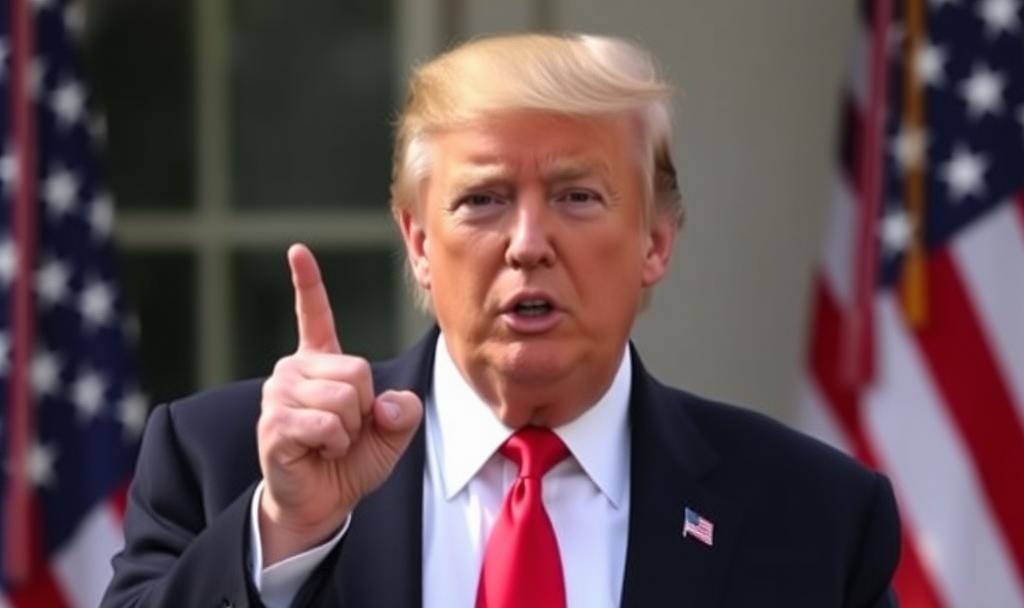Trump Administration to Criminally Investigate Officials Resisting Immigration Policies
In a controversial escalation of its immigration enforcement strategy, the Trump administration announced plans to criminally investigate and prosecute state and local officials who obstruct federal immigration actions. The directive, issued on January 21, 2025, by Acting Deputy Attorney General Emil Bove, aims to hold officials accountable for policies that conflict with federal immigration laws. This move targets so-called "sanctuary cities" and has sparked significant legal and political debate across the United States.
DOJ Directive Targets Sanctuary Policies
The Department of Justice (DOJ) memo outlines a strategy to prosecute state and local officials under federal laws, including conspiracy and harboring undocumented immigrants. The document emphasizes that federal law prohibits any actions by state or local authorities that obstruct lawful immigration enforcement. "State and local actors must comply with federal commands," Bove wrote in the memo, which Reuters first reported.The directive also revives policies from President Trump’s first term, prioritizing cases involving mandatory minimum sentences or capital punishment for immigration-related crimes. Prosecutors are required to notify DOJ leadership if they decline to pursue such cases.
Sanctuary Cities Under Federal Scrutiny
Sanctuary cities—jurisdictions that limit cooperation with federal immigration authorities—are at the center of this crackdown. These policies, often enacted to protect undocumented immigrants from deportation, have long been criticized by Republicans as undermining national security. The DOJ memo establishes a new "Sanctuary Cities Enforcement Working Group" tasked with identifying state and local laws that conflict with federal immigration policies and challenging them in court.
Jessica Vaughan, policy director at the Center for Immigration Studies, characterized the move as fulfilling Trump’s campaign promises. "This is about sending a strong message to sanctuary jurisdictions," Vaughan told CNN.
Broader Immigration Agenda
The directive comes as part of a sweeping immigration overhaul initiated by President Trump since his second inauguration on January 20, 2025. Within days of taking office, Trump declared illegal immigration a national emergency and signed executive orders reinstating the "Remain in Mexico" policy and expanding expedited deportations. His administration also deployed 1,500 troops to the southern border and suspended refugee resettlement programs. Trump has vowed to implement "mass deportations" targeting millions of undocumented immigrants and has proposed eliminating birthright citizenship. According to NPR, these measures aim to solidify his administration’s hardline stance on immigration.
Legal Challenges Expected
The DOJ’s aggressive approach is likely to face significant legal challenges. Critics argue that prosecuting state and local officials for resisting federal policies could violate constitutional protections under the Tenth Amendment, which safeguards states’ rights. The American Civil Liberties Union (ACLU) has already signaled its intention to challenge such prosecutions in court."This is an unprecedented overreach of executive power," said Omar Jadwat, an attorney with the ACLU. Sanctuary city leaders have also vowed to resist federal pressure. Chicago Mayor Brandon Johnson reaffirmed his city’s commitment to protecting immigrant communities: "We will remain a sanctuary city despite these threats."
Impacts on Immigrant Communities
Immigrant advocacy groups warn that these policies could create widespread fear among undocumented residents and disrupt local communities. Catholic Charities San Diego reported that federal authorities have stopped releasing migrants into their care, leaving hundreds stranded without support. "We are seeing panic among refugees here," said Vino Pajanor, CEO of Catholic Charities San Diego.
The administration’s expanded expedited removal policy now applies nationwide to undocumented immigrants who cannot prove continuous residency in the U.S. for at least two years. This change allows immigration authorities to deport individuals without court hearings—a practice previously limited to areas near U.S. borders.
Political Reactions and Public Opinion
The Trump administration’s actions have drawn sharp reactions from supporters and critics. Republican lawmakers have praised the measures necessary for national security and law enforcement. "This is about restoring order," said Senator Tom Cotton (R-Arkansas).On the other hand, Democratic leaders have condemned the policies as draconian and unconstitutional. House Minority Leader Hakeem Jeffries called the directive "an attack on states’ rights and immigrant communities."Public opinion on immigration remains deeply polarized along partisan lines. A recent Pew Research Center poll found that 68% of Republicans support stricter immigration enforcement, while 74% of Democrats oppose measures targeting sanctuary cities.
Economic Implications
Experts warn that the crackdown on sanctuary cities could have economic consequences for affected jurisdictions. Sanctuary cities like Los Angeles, New York City, and Chicago contribute significantly to the U.S. economy through their labor force and tax revenues generated by immigrant populations.
According to a report by the Center for American Progress, undocumented immigrants contribute approximately $11 billion annually in state and local taxes nationwide. Critics argue that aggressive enforcement actions could deter economic participation among immigrant communities.
Looking Ahead: Legal Battles Loom
As the Trump administration intensifies its immigration enforcement efforts, legal battles are expected to dominate the coming months. Advocacy groups like the ACLU are preparing lawsuits that challenge the constitutionality of prosecuting state and local officials under federal laws. Meanwhile, sanctuary city leaders are bracing for potential confrontations with federal authorities. The future of U.S. immigration policy remains uncertain as these issues unfold in courts and legislatures across the country. For now, immigrant communities face heightened scrutiny while political leaders grapple with one of America’s most divisive issues. In this charged environment, the Trump administration’s latest actions underscore its commitment to reshaping U.S. immigration policy—setting the stage for contentious debates over states’ rights, constitutional limits, and human rights in America’s ongoing struggle with immigration reform.



